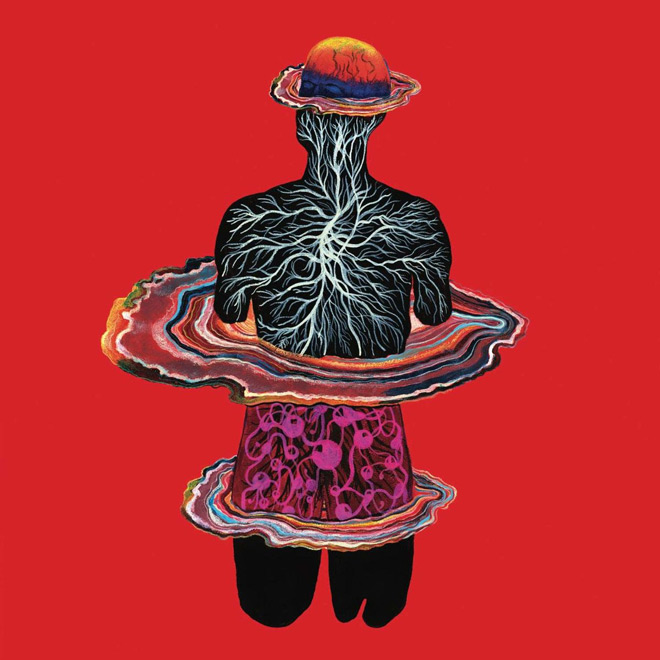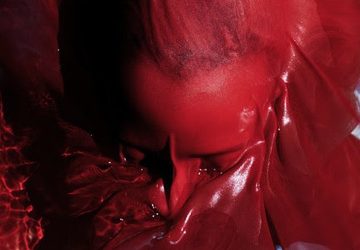
Once again plotting an instrumental route, and with a bit of a lineup change, Circadian finds Marshall upbeat and punchy, aided by the return of Nathan Bulla on drums and percussion, coupled with the crisp, winding bass work of newcomer Jacob Umansky. With Marshall based in Toronto, Canada, the recording process for Circadian was disrupted by the COVID-19 pandemic; while Bulla was able to travel to the studio and overlap with Marshall for most of the necessary tracking, Umansky, based in the United States, was unable to do the same.
Nevertheless, Circadian hits the ground running, and the disparate locations never make their way into the finished product. First single and lead track “5-HTP” takes its name (presumably) from 5-Hydroxytryptophan, a common medication used to treat depression, suppress appetite, and induce sleep. Luckily, the track handles the first symptom and leaves the rest alone, as Marshall opens the song with distant, muffled guitar licks that soon break into a Progressive Rock maelstrom behind the work of Bulla and Umansky.
Purportedly the blackest substance on Earth, “Vantablack,” the track, is the heaviest on the album, and maybe not by accident; the procession of guitar licks and chord changes are again ably backed by Umansky and Bulla, who find pockets of time and space to move about and make their own symphonies—Umansky, in particular, has some nice loud bits where only he and Bulla have the floor. Elsewhere, “Signal Hill” dips its notes into the Post-Metal genre, leaving quick, quiet choral valleys in between the instrumental verses that propel the track.
Guest appearances abound on this album; second single “Lock & Key” makes a case for best song on the LP, in no small part due to the assistance of Joshua De La Victoria on guitar. The track alternates between dense, tangled play of guitar, bass, and drums, and small, intuitive interludes where the guitar takes the lead and drives things all by itself. Marco Sfogli appears on “String Theory,” adding guitar flair and making another strong push for top album track.
However, the most unique appearance comes from Antonio Hancock, also known as Saxl Rose, who lends his titular instrument to the heavily Progressive track “D.O.S.E.;” his appearance may be limited to the very last portion of the track, but it fits perfectly and blends well into the closer. “Earthling” has a nice airy start that could launch its own ninety-minute trip-hop dreamscape—perhaps this was the sleep induction “5-HTP” was meant to deliver. The intro quickly vanishes as “Earthling” becomes one last lap of staccato and beauty, climbing up and down the listener’s spine.
Before the listener is able to adjust and absorb the album, all thirty-six minutes have passed and Circadian has finished its revolution. Always able to side-step the most egregious self-indulgence, Circadian instead finds strength in mixing artistic prowess with stark accessibility. The album may be broken into ten pieces, but Circadian is best enjoyed in a single chapter-less shot. The tight piecing of Marshall, Bulla, and Umansky is peppered well by guest appearances, but the places where all three come together is where Circadian shines the most. The album may clock to a close far too quickly, but that means subsequent listens can be started immediately. That is why Cryptic Rock gives this fresh new album 4 out of 5 stars.







No comment